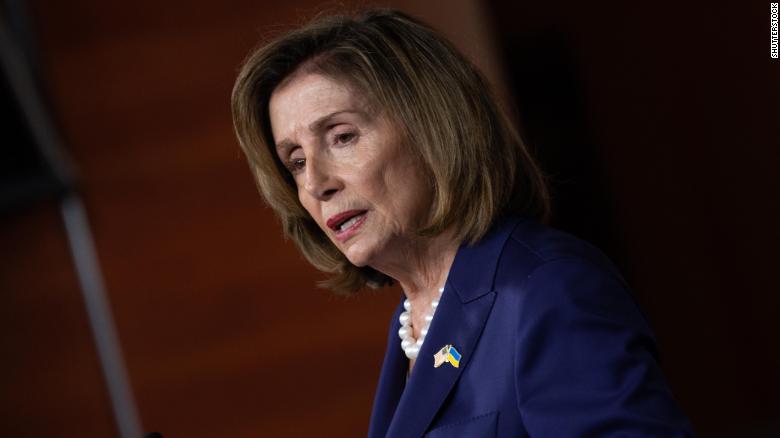(Bloomberg) -- China Evergrande Group, the world’s most indebted developer, failed to deliver a ‘preliminary restructuring plan’ it had promised by the end of July, fueling risks investors will grow more impatient just as a broader debt crisis in the nation’s property industry spreads.
Most Read from Bloomberg
The Crypto Collapse Has Flooded the Market With Rolex and Patek
Elon Musk’s Antics Turn Owners and Would-Be Buyers Against Tesla
The beleaguered real estate giant presented instead what it called ‘preliminary restructuring principles’ for its offshore debt, in an exchange filing late Friday. The stakes are high, with some $20 billion in dollar bonds among total liabilities of about $300 billion. Any restructuring could be among China’s biggest ever.
Evergrande made no reference to the preliminary plan it had said as recently as June it expected to announce by the end of July. Investors had been waiting on that in hopes the proposal would provide clarity on debt extensions and asset sales. Instead they were told the developer would try to announce a specific restructuring plan within 2022.
Adding to setbacks, the company said in a filing Sunday that one of its units will need to sell shares of a bank in northeastern China, after losing an arbitration ruling and being ordered to pay about 7.31 billion yuan ($1.1 billion) in compensation. The lender in question is Shengjing Bank Co., in which Evergrande had already pared its stake last year.
The developments at Evergrande could fuel concern about the future of a firm whose fate has broader implications for China’s $50 trillion financial system and millions of home owners. Other builders have added to record defaults since last year after a government crackdown on excessive leverage and speculation on housing. Liquidity crunches have prompted developers to stall projects and leave fees unpaid. Unprecedented mortgage and loan boycotts have erupted from angry homebuyers and suppliers.
Concerning the Shengjing Bank shares, Evergrande Group (Nanchang) Co. had used the shares as collateral, which was claimed by an unidentified company after the unit failed to repay the loans, China Evergrande Group said in the filing Sunday.
The sheer size of Evergrande’s debt has left global investors worried that any collapse could spark financial contagion and curb growth in the world’s second-largest economy, which depends on the housing market for about a quarter of gross domestic product.
“The whole pyramid is collapsing now,” said Anne Stevenson-Yang, co-founder of J Capital Research Ltd. “What’s different is that things are worse now because of the Evergrande crisis a year ago, which is spreading its tentacles throughout the Chinese economy.”
Newly appointed Chief Executive Officer Shawn Siu said that Evergrande will focus on completing construction projects, and won’t sacrifice the interest of onshore investors, according to an interview with 21st Century Business Herald. When asked why the restructuring plan fell short of market expectations, Siu said that the company encountered complicated and challenging matters, asking for more patience.
Evergrande’s potential failure to follow its previously set timeline would be “negative for overall investor confidence, and sets the process on the wrong foot as it would dent Evergrande’s credibility further,” Jean-Louis Nakamura, the chief investment officer for the Asia Pacific region at Lombard Odier, told Bloomberg News earlier last week.
The development comes just days after a management shakeup stirred fresh uncertainties. The group said in July that former CEO Xia Haijun was forced to resign amid a company probe into how 13.4 billion yuan of deposits were used as security for third parties to obtain bank loans, which some borrowers then failed to pay back. Chief Financial Officer Pan Darong was also made to step down.
“The delay is not exactly a surprise to the market given that there was the negative development at Evergrande recently about the resignation of the CEO and the CFO,” said Zerlina Zeng, senior credit analyst from CreditSights.
The company itself said as recently as June that it was actively pushing forward with restructuring work and expected to announce the preliminary plan by the end of July.
The builder shook markets when it defaulted on dollar-bond payments late last year. It is also facing a winding-up lawsuit and resistance from creditors that could push it toward its first onshore default.
Evergrande said in the Friday filing that it may offer some assets outside of China to repay creditors, including shares of its electric vehicle and property management services. The restructuring will include the company’s offshore notes, debt obligations of its subsidiaries, and repurchase obligations by its unlisted online sales platform FCB Group, it said.
The builder said “the principle of fair treatment of creditors will be reflected in the restructuring proposal.”
President Xi Jinping’s government is trying to strike a balance between curbing debt at acquisitive and leveraged private companies, while limiting the economic fallout. Xi is seeking to rein in ballooning borrowings and the billionaire class as part of his “common prosperity” campaign to reduce a yawning wealth gap. That’s led to a record wave of dollar bond defaults by developers.
In one example of how this is all cascading, a group of small businesses and suppliers that said they’d stop paying their own debts blamed Evergrande for leaving them out of pocket.
China is considering a plan to seize undeveloped land from distressed real estate companies, using it to help finance the completion of stalled housing projects that have sparked mortgage boycotts across the country, according to people familiar with the matter.
The proposal, which is still under discussion and could change, would take advantage of Chinese laws allowing local governments to wrest back control of land sold to real estate companies if it remains undeveloped after two years, without compensation. That would give authorities more leeway to direct funds toward uncompleted homes, potentially to the detriment of creditors who would lose claims on some of developers’ most valuable assets.













